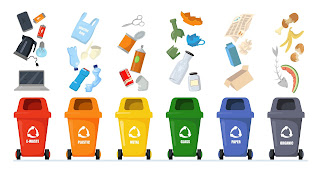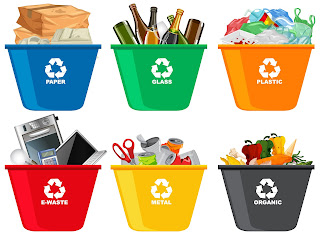Revolutionizing Merchandise Management with SwagCycle
In today's rapidly evolving corporate landscape, rebranding and mergers are common occurrences. However, these changes often lead to a significant dilemma: what happens to the obsolete branded merchandise? Enter SwagCycle, a startup dedicated to responsibly managing the lifecycle of branded merchandise. By leveraging a proprietary network of partners, SwagCycle provides a solution that helps companies repurpose and recycle items in a responsible, ethical, and affordable manner.
The Problem with Obsolete Branded Merchandise
When companies undergo rebranding or mergers, a large quantity of branded merchandise becomes obsolete. This merchandise, which ranges from apparel to office supplies, often ends up in landfills, contributing to environmental pollution. Not only is this wasteful, but it also represents a loss of investment in these items. Companies need a way to manage this transition responsibly without incurring high costs or compromising their brand integrity.
SwagCycle: The Solution
SwagCycle steps in to solve this problem by offering a seamless and sustainable solution for managing obsolete branded merchandise. Here’s how SwagCycle makes a difference:
1. Repurposing Merchandise
SwagCycle collaborates with a network of partners to repurpose branded items. Whether it’s transforming outdated apparel into new products or finding innovative uses for other merchandise, SwagCycle ensures that these items get a new lease on life. This not only reduces waste but also supports the creation of unique, upcycled products.
2. Recycling in an Ethical Manner
For items that cannot be repurposed, SwagCycle ensures they are recycled in an environmentally friendly and ethical manner. By partnering with certified recycling facilities, SwagCycle guarantees that materials are processed responsibly, minimizing environmental impact and promoting sustainability.
3. Affordable Solutions
SwagCycle understands that cost is a significant concern for companies looking to dispose of obsolete merchandise. The startup offers affordable solutions that align with corporate budgets while maintaining high standards of ethical and environmental responsibility. This approach allows companies to manage their branded merchandise lifecycle without breaking the bank.
The SwagCycle Network
SwagCycle's success lies in its proprietary network of partners. This network includes upcycling specialists, certified recycling facilities, and other innovative organizations dedicated to sustainability. By working with these partners, SwagCycle can offer comprehensive solutions tailored to the specific needs of each client.
Why Choose SwagCycle?
- Responsibility: SwagCycle prioritizes ethical and environmental responsibility, ensuring that obsolete merchandise is managed in a way that minimizes harm to the planet.
- Innovation: By repurposing and recycling items, SwagCycle promotes innovation and creativity, turning waste into valuable resources.
- Cost-Effectiveness: SwagCycle’s solutions are designed to be affordable, making it easier for companies to adopt sustainable practices without significant financial burden.
Join the Movement
SwagCycle is more than just a service provider; it's a movement towards a more sustainable future. By choosing SwagCycle, companies can play a part in reducing waste, conserving resources, and promoting environmental stewardship. As we move forward, responsible management of branded merchandise will become increasingly important, and SwagCycle is at the forefront of this revolution.
In conclusion, SwagCycle is transforming the way companies handle obsolete branded merchandise. Through repurposing, ethical recycling, and cost-effective solutions, SwagCycle ensures that rebranding and mergers do not result in unnecessary waste. Join SwagCycle in making a positive impact on the environment and set a new standard for sustainability in the corporate world.




Comments
Post a Comment